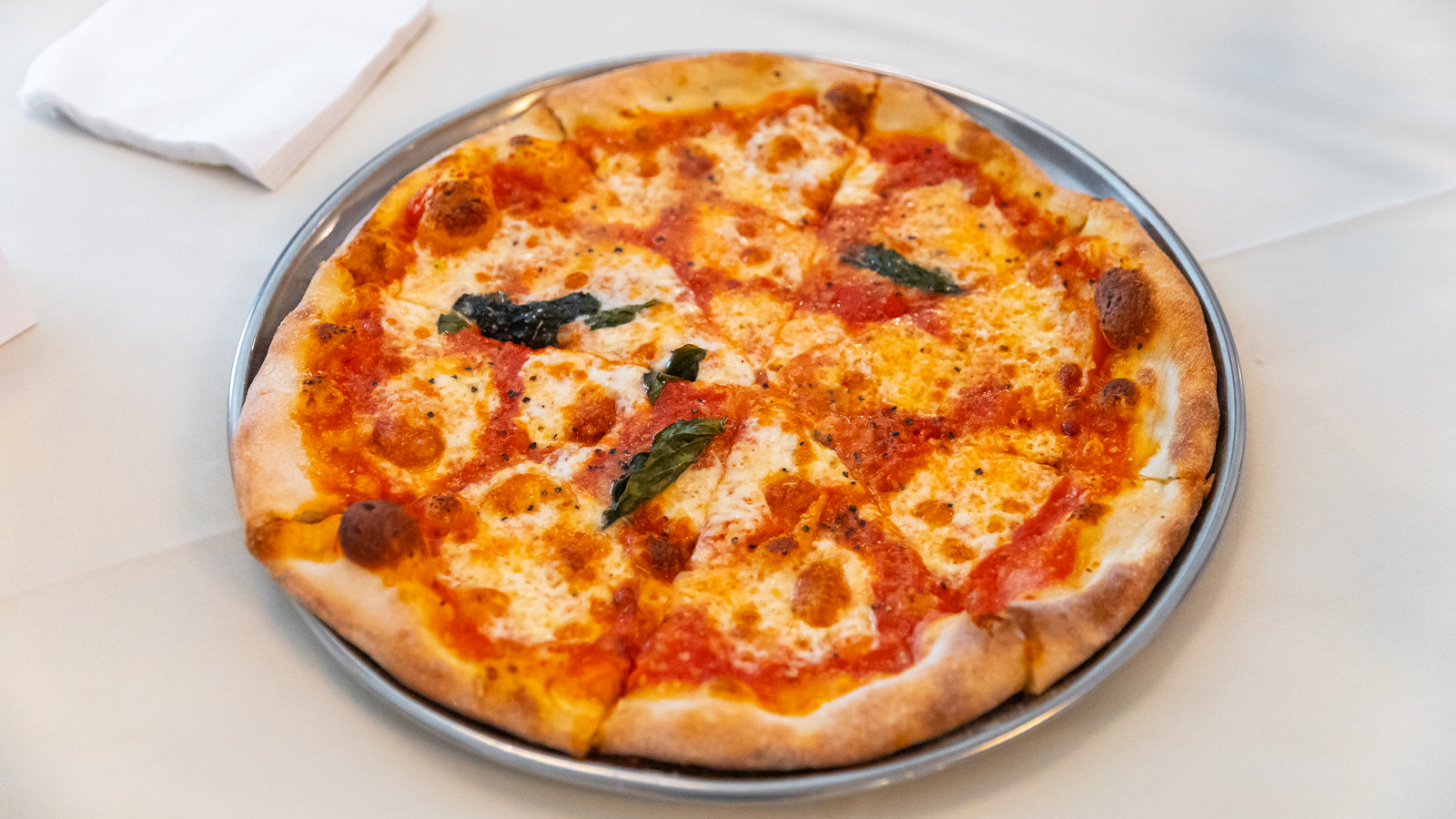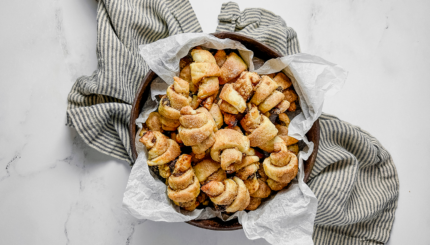Midway through Vice, Munchies’ “The Pizza Show: Chicago” episode (2016), restaurant and pizzaiolo extraordinaire Burt Katz (now deceased) issues an important declaration:
“People used to say to me for years: ‘You must be Italian, you make good pizza.’ I got so damn sick and tired of hearing it, I had the sign made up: Jews Make Good Pizza.”
That was certainly true of Katz, whose pizzeria Burt’s Place remains a Chicago icon. But Katz was not simply referring to himself, for he was certain of what others have only started to realize in the last decade: A new generation of pizza chefs and experts are proving that pizza is for everyone (this is America, after all), and anyone – not just those with Italian blood – is capable of making good pizza, including Jews.
Preparing pizza did not come naturally to many first-wave Jewish immigrants in the United States. In addition to the fact that their Italian immigrant brethren (particularly those hailing from Naples) had a corner on the early market, many Jewish transplants were unfamiliar with the ingredient combinations found in traditional cheese-and-tomato pies. In some cases, kosher restrictions presented another challenge, as mingling dairy with meat (let alone verboten pork pepperoni) was not an option.
The Nosher celebrates the traditions and recipes that have brought Jews together for centuries. Donate today to keep The Nosher's stories and recipes accessible to all.
Katz laid the foundation for a small group of Jewish pioneers to participate in and influence North America’s pizza scene. In 1989, Katz and his wife Sharon opened Starback’s Pizza (later renamed Burt’s Place to avoid litigation from Starbucks). Katz had already enjoyed success by opening other pizza chains, but thanks to a timely visit in 2009 by Anthony Bourdain, his namesake joint achieved stratospheric popularity. Numerous accolades followed the commercial success, and in 2012, the editorial staff of Men’s Health named Burt’s the “USA’s Best Pizza Parlor” based on a survey of more than 80,000 readers. Katz passed away in 2016 but, ever the planner, he’d been training his chosen successors, Jerry Petrow and John Munao, for four years prior. Burt’s Place continues to wow Windy City residents with wonderful slices.
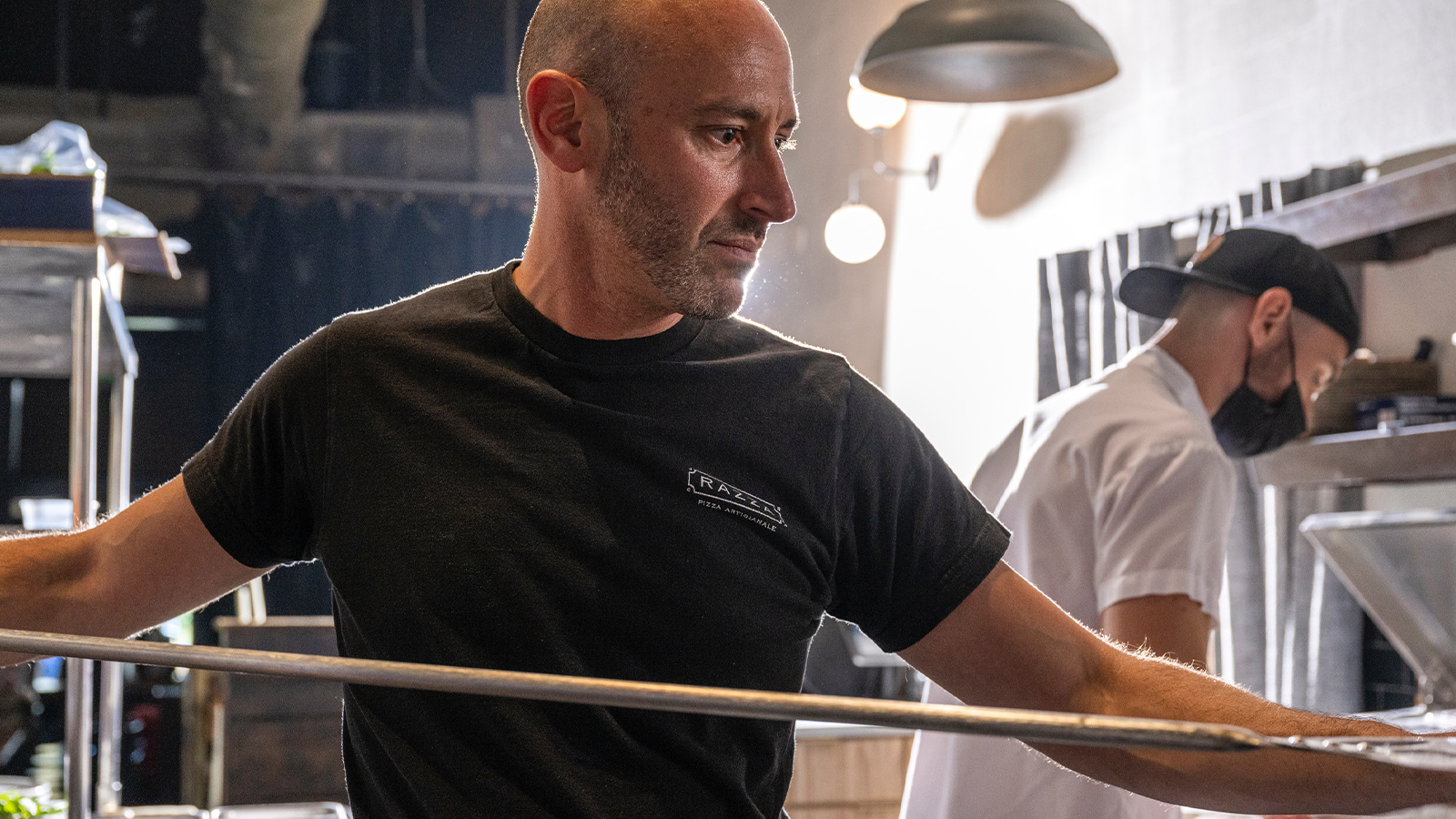
Contemporaneous to Katz’s boom in Chicago in the early 21st century, a new phenomenon was emerging on the East Coast: The rise of the Jersey Boy pizzaiolo. The leader of this trend was arguably Dan Richter of Razza, whose obsession with pizza was a home-grown affair:
“My love of pizza began in childhood. Pizza is a fixture growing up in the NY-NJ area – baseball games, birthday parties, school lunches, Tuesday night dinners and the quick stop while running errands with my mother,” Richter told The Nosher.
Inspired by a graduation trip to Italy, Richter began cooking all things Italian in his native New Jersey. In 2007, Richter purchased an unassuming neighborhood restaurant in Maplewood and transformed it into a critically acclaimed pizzeria called Arturo’s by creating stunning pies made with novel combinations of seasonal ingredients. (See, for example, his “Potato Pie,” adorned with fingerling spuds, raclette cheese and leeks.) Richter then opened Razza in Jersey City, to much acclaim. The James Beard Foundation recognized Richter as a semi-finalist for “Rising Star Chef” in 2011, and The New York Times gave Razza a three-star review in 2017, cementing Razza’s place in Jersey pizza history and Richter’s role as a premier pizzaiolo.
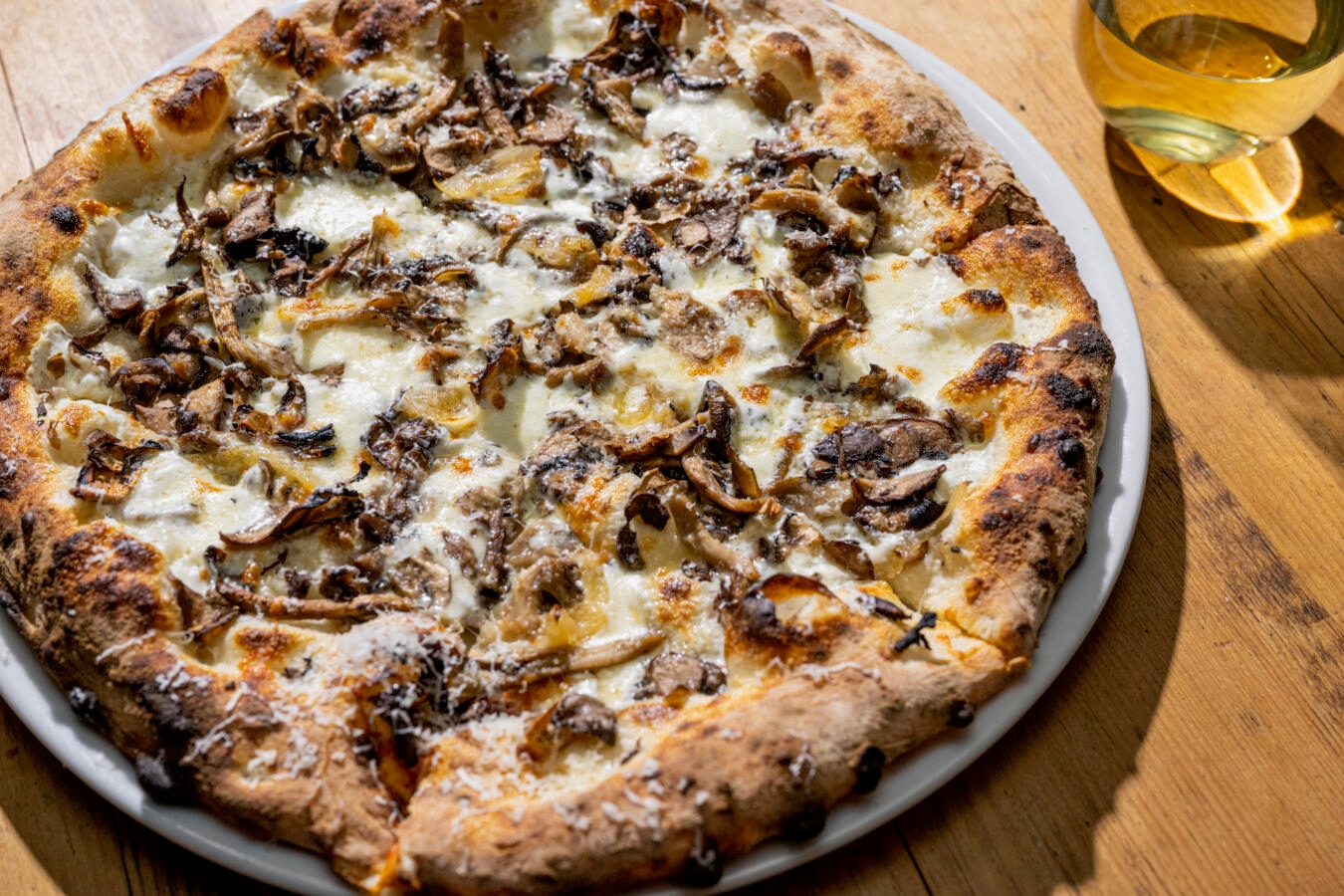
Richter, who was raised in what he described as a “moderately Jewish” household, admits being Jewish in the pizza industry has been at times “interesting.”
“I inherently approach pizza without authenticity and I am not bound by rules, tradition or anything else in my pursuit. This enables me to think about pizza differently and it has all been fuel for my quest to make the best possible product. Pizza-making is a process with very specific steps that anyone can take, regardless of their religion, ethnicity, gender, etc.,” he said.
Another nice Jewish boy from Jersey who has made inroads in the national pizza game is Scott Wiener. Founder of Scott’s Pizza Tours, Wiener found a passion for pizza while traveling with his band in college. In 2008, he channeled his love for visiting and meticulously documenting pizza styles in various establishments by launching guided tours of the best pizza joints in New York and New Jersey. Wiener told The Nosher that “being a Jewish kid from the New Jersey suburbs doesn’t make me the poster boy for pizza.” But avers: “Being Jewish indirectly influences my tours because people are always surprised to see that someone who is so into pizza isn’t even 0.05% Italian.”
Wiener has helped over 100,000 people navigate the NY-NJ pizza scene, including celebrities like Ryan Seacrest, Jimmy Fallon and Sean Aston. To date, Scott’s Pizza Tours has introduced participants to around 80 different parlors over 15 years, and funneled over $1.5 million to independent pizzerias.
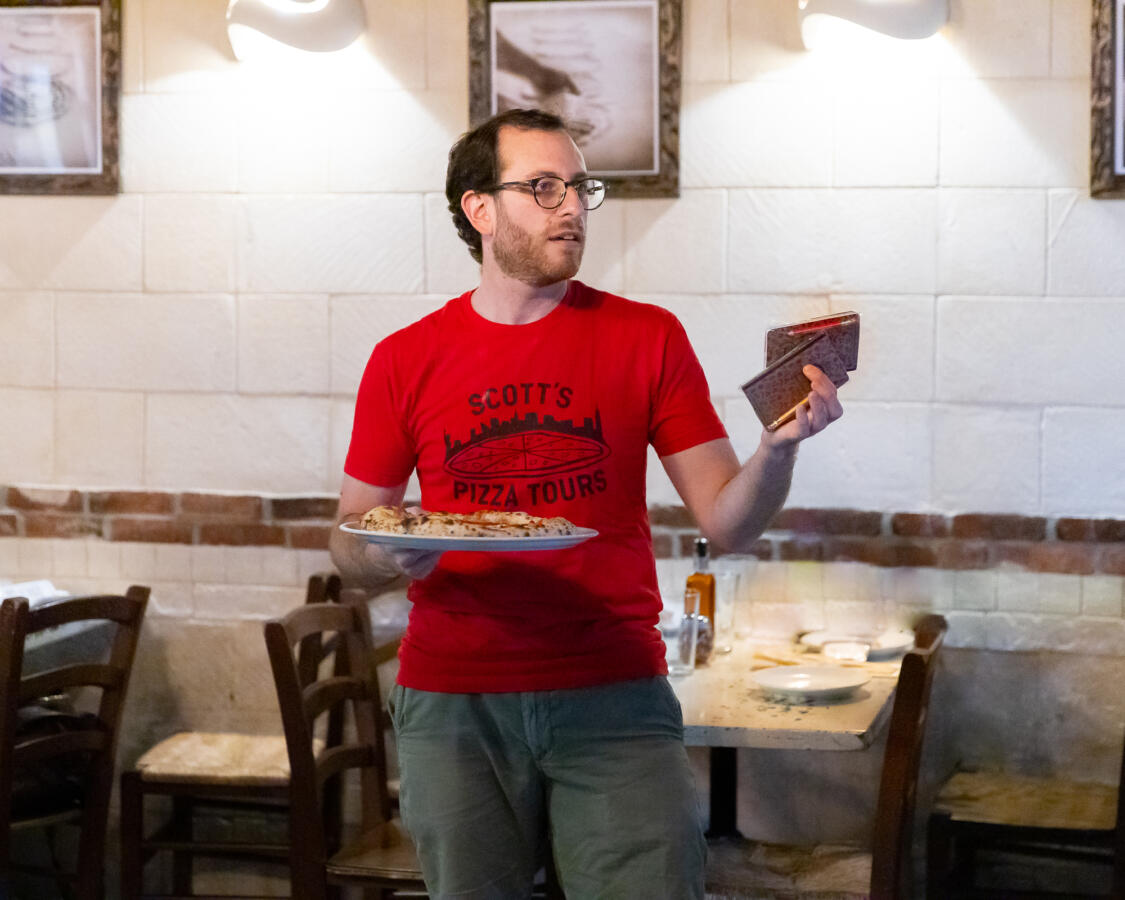
Wiener has proven that the pen can be as mighty as the pie: Having already written one best-selling book on the art of pizza boxes, he has plans for a pizza publication, in addition to expanding his tours to include even more pizzerias.
Procuring and producing good pizza can be tricky, however, for those Jewish Jersey boys who keep kosher. Enter Zev Rocklin of Fair Lawn, an Orthodox Jew who runs Zevy’s Pizza, named “Best Pizza Restaurant” in 2022 by the Fair Lawn Award Bureau.
“Growing up in Rochester, New York, there weren’t any kosher pizzerias,” Rocklin told The Nosher. “But my mother would make amazing pizza from homemade dough – that’s when I became passionate [about] pizza.”
After college, Rocklin honed his pie-making prowess while working at Lake Como in Washington Heights. “That’s where I learned to make pizza at a fast pace, but [also keep] it as authentic and fresh as possible.”
Rocklin believes that “kosher pizza can be just as good if not better than any non-kosher pizza,” and there’s no big secret to him securing the corner on the kosher pizza market, just dedication and fresh ingredients. Besides adhering to kosher dietary rules, the otherwise easy-going Rocklin is strict about one other aspect of his pies, specifically what should never go on a pizza: “Pineapple. Period.”
Positive feedback from customers feeds his passion. “The pleasure [of my job] is being able to serve my customers the best pizza and see their faces when they take that first bite.”
This posse of nice Jewish boys from Jersey are proving, one pie at a time, that “Jewish food” and pizza is a false binary. That magical combination of dough, sauce and toppings knows no culinary cultural or religious boundaries; great pizza can be Jewish pizza, no matter how you slice it.
